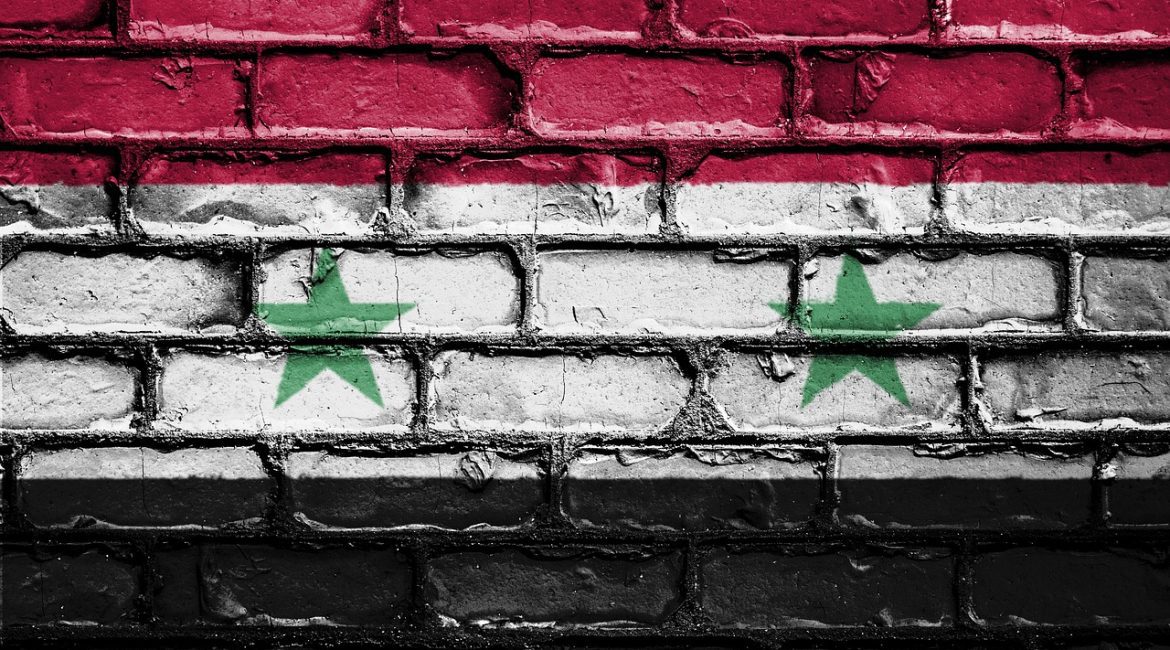Since the Syrian army and its allies defeated rebel groups and regained control of more than two-thirds of the territory, Israel has carried out hundreds of air raids in an attempt to prevent or slow-down deliveries of Iranian weapons to Lebanese Hezbollah. Israeli fighter-bombers target cargoes and warehouses of weapons and ammunition, arms convoys, military positions of pro-Iranian militias in almost all provinces under the control of Syrian government forces. Damascus and Aleppo airports have been targeted and taken out of service on several occasions.
Since the start of the Gaza war on October 7, Israel has significantly intensified its raids. On December 25, a new level was reached with the death of one of the most senior officers of the Iranian Revolutionary Guards in Syria, Razi Moussavi, south of Damascus.
On Saturday, January 20, Israeli planes destroyed a four-story building in a neighborhood of Damascus, during a meeting of senior officials of the al-Quds Brigade of the Iranian Guards, and five members of this elite corps were killed, including the deputy head of intelligence and his right-hand man.
Aside from the use of air defense systems, the Syrian army has almost never responded to hundreds of Israeli strikes in recent years. After the January 20 raid, the Syrian Ministry of Foreign Affairs simply published a statement denouncing “Israel’s criminal acts”, without expressing any intention of retaliation.
This military passivity has been accompanied, since October 7, by a weak political reactivity towards the events in Gaza. President Bashar al-Assad took several days before speaking on this subject and the interventions of Syrian leaders on the issue are limited to episodic press releases and declarations.
However, Syria is an essential component of the “axis of resistance”. This alliance sponsored by Iran includes, in addition to Damascus, the Lebanese Hezbollah, Hamas, and "Islamic Jihad in Palestine", the “Islamic Resistance in Iraq”, made up of Shiite groups and organizations, and the "Ansarullah" movement which controls the north of Yemen, including the capital Sanaa.
The importance of Syria comes from the fact that it is the only member of this axis – apart from Iran – with legal state status recognized by the United Nations. All the other members of this alliance are extra-state actors (some are placed on American and European lists of terrorist organizations).
However, Syria's central role in this alliance comes from its geographic location. Its maritime facade offers Iran access to the Mediterranean, its border with Israel allows Tehran and its allies to have levers of pressure on the Hebrew State, and, finally, it ensures geographical continuity between Iran and Lebanon via Iraq. Syria is a vital link in the supply line that provides Hezbollah with weapons and ammunition from the Islamic Republic. If Syria falls, the continuity of this land corridor will be broken.
Syria is therefore an essential actor in the “axis of resistance” but it is at the same time its weakest link. After 13 years of war and severe Western sanctions, the country is exhausted and its economy destroyed. 90% of the population lives below the poverty line, as certain social categories suffer from famine. Infrastructure is on its knees, fuel shortages are chronic and electricity is drastically rationed.
The Syrian army, which has not returned to its barracks for 13 years, is deployed today on several fronts: in the north-west and north of the country, in Latakia, Idleb, and Aleppo, facing jihadist groups and pro-Turkish rebels; in the north of the provinces of Aleppo, Raqqa and Hassakeh, facing the Turkish army and its auxiliaries; in the north-east, in the towns of Qamishli and Hassakeh, facing Kurdish militias; in the Central Desert, facing the Islamic State group; in the east, in Deirezzor, facing the Kurds and American troops; in the South, in Quneitra and Deraa, facing the Israeli army.
Faced with all these challenges, the last thing the Syrian army would want is to enter into direct confrontation with the Jewish state. Therefore, it avoids responding to Israeli attacks so as not to provoke an escalation, especially since Israel's priority targets are the Iranians and their allies.
In the meantime, the deployment of an American fleet in the Eastern Mediterranean had a deterrent effect on the Syrian government. By not getting further involved in the conflict, Syria is also seeking not to compromise the process of reintegration within the Arab League and the normalization of its relations with Saudi Arabia.
At this stage of the war, Iran and its allies seem satisfied with the freedom of action granted to them on the ground by the Syrian authorities, who have embraced more a logic of survival than of confrontation. However, if the conflict spreads, no one can guarantee that Iranians will not demand more from this susceptible ally.

